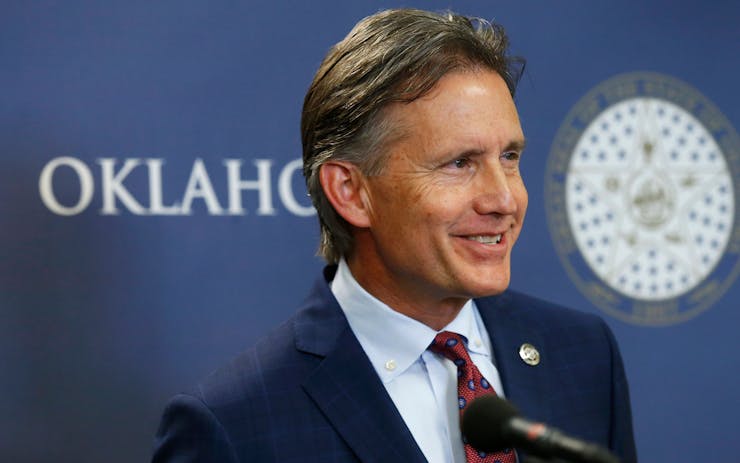OKLAHOMA CITY (AP) — Oklahoma’s Board of Health overstepped its authority with several of the emergency rules on medical marijuana it adopted last week, Oklahoma Attorney General Mike Hunter wrote Wednesday in a letter to the head of the agency.
In the letter to Interim Commissioner of Health Tom Bates, Hunter specifically cites last-minute changes the nine-member board approved last week that prohibit the sale of smokable marijuana and require a pharmacist at every dispensary.
Those rules were recommended by groups representing doctors, pharmacists and hospitals, but were fiercely opposed by medical marijuana advocates. The board approved those two rules despite a warning from its own general counsel that members didn’t have the authority to do so.
Hunter says several other rules adopted by the board appear to go beyond its statutory authority, including limits on the amount of THC allowed in cannabis products, restrictions on dispensaries, requiring surety bonds for licensing and requiring medical marijuana to be grown in enclosed structures.
Your Body, Your ChoicesOfficials Must Do Will of People
Hunter said none of those regulations was authorized under State Question 788, the proposal to legalize medical marijuana that Oklahoma residents approved last month with 57 percent of the vote.
“I have no doubt that the board in good faith sought to regulate marijuana in a manner it believed would best promote the health and safety of Oklahomans,” Hunter wrote. “However, in so doing, the board made policy judgments not authorized by statute.
Those policy judgments are the prerogative of the Legislature and the people.
“Those policy judgments are the prerogative of the Legislature and the people.”
Hunter suggested the board reconvene to reconsider the rules based on his recommendations.
State Board of Health President Tim Starkey said in a statement that he has asked the agency’s staff to make the recommended changes and plans to call a special meeting to consider those changes “as soon as possible.”
The board’s adoption of the new rules, which were quickly signed by Gov. Mary Fallin, already has led to two separate lawsuits filed by medical marijuana advocates.





